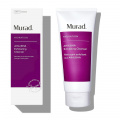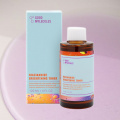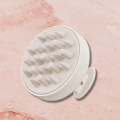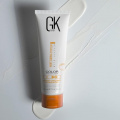Ways to Deal with Itchy Scalp During Pregnancy - Causes & Cure
Dealing with an itchy scalp during pregnancy can be quite irritating. Here, we provide you with an informative guide on the different causes and ways to treat the itch.
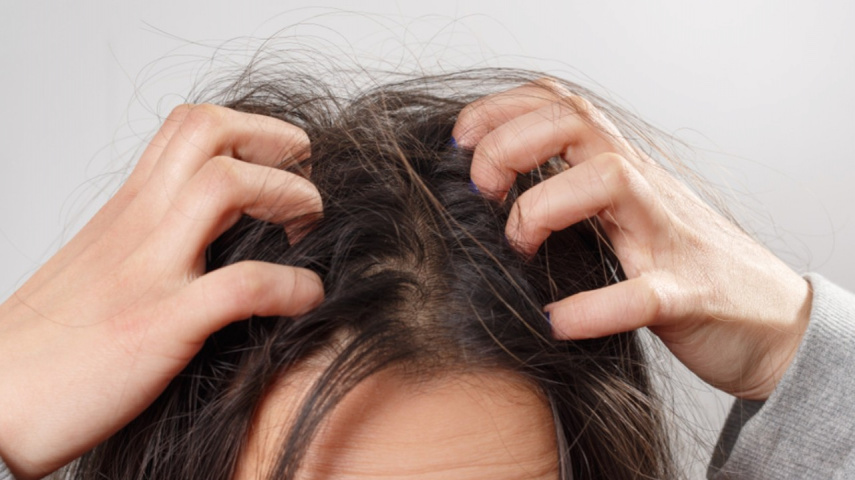
An itchy scalp during pregnancy and excessive hair loss are pretty common things to happen while carrying a baby. This can have various causes. Firstly, those pregnancy hormones can lead to sensitive scalp and skin. This in a way can lead to either drier or oily hair. Sometimes, it might be a reaction to a hair product you're using. Plus, consider other causes not related to pregnancy, like fungal infections, head lice, or allergies. Here, let's dive into what are the causes of dry itchy scalp during pregnancy and how to deal with it.
Why Does Your Scalp Itch During Pregnancy?
Your scalp naturally produces oil (sebum) to protect your hair. The problem arises when there's too much oil on your scalp, creating a perfect environment for fungi to thrive. There are several reasons why this excess oil might occur.
1. Hormonal Changes: The biggest culprit is often the hormonal rollercoaster of pregnancy. These hormonal shifts can confuse your scalp, prompting it to produce more oil and generate new skin cells. This extra oil can fuel fungal growth and, combined with the shedding of old skin cells, result in dandruff.
2. Dehydration: Not eating properly or not drinking enough water can lead to dehydration, which can, in turn, cause itchy skin and scalp.
3. Dandruff: Dandruff triggered by dry weather or conditions like seborrheic dermatitis (inflammation) can also make your scalp itch. A seborrheic dermatitis is a chronic form of dandruff that can spread to your head, neck, back, legs, arms, and even your pubic area.
4. Stress: Pregnancy can be a stressful time for many women. The hormonal response to stress can cause inflammation in your body, which may affect your scalp.
5. Infrequent Hair Washing: Not washing your hair regularly is a common reason for an itchy scalp. Dirt, oil, pollution, sweat, and more can accumulate on your scalp, leading to mild itching.
6. Inappropriate Products: Pregnancy can make your skin super sensitive. Hair care products and hair dyes that were fine before might start irritating your skin now, worsening your dandruff issues.
Ways to Treat Itchy Scalp During Pregnancy
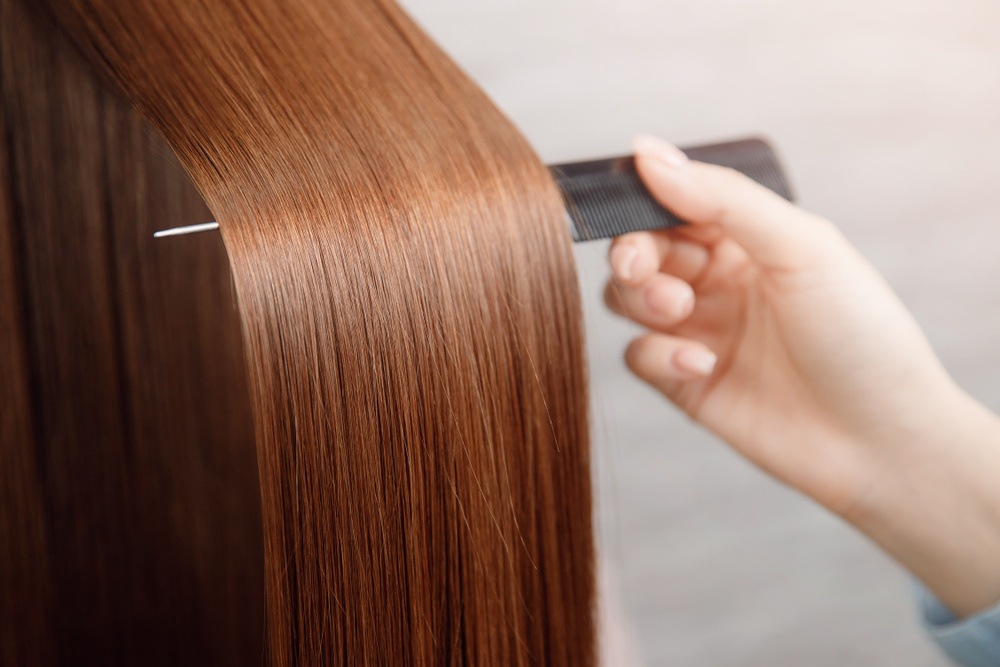
Pregnancy can be a challenging journey, and the last thing you want is to be bothered by dandruff. But take heart, it's a common issue, and the good news is that it's usually temporary. There are solutions to help you deal with it, so you can focus on taking care of your precious bundle of joy. Let's see how to relieve itchy scalp during pregnancy in a safe way.
1. Consult a Doctor:
The first step is to consult your doctor for guidance. It's crucial to be cautious about the products you use in your hair during pregnancy to avoid any complications. Once your doctor provides the green light, you can explore various ways to treat your itchy scalp.
2. Hair Care:
Establishing a better hair care routine can work wonders for dandruff. Regularly washing your hair with the right shampoos and conditioners can address the root causes of dandruff. Consider using neem-based shampoos or products infused with natural ingredients like argan oil and aloe vera to nurture your scalp.
3. Anti-Dandruff Shampoos:
If you're dealing with dandruff or seborrheic dermatitis, an anti-dandruff shampoo is your go-to solution. Look for shampoos containing selenium sulfide, pyrithione zinc (an antifungal agent), or ketoconazole for effective treatment.
4. Avoid Harsh Chemicals:
Pregnancy can make your hair and scalp more delicate and prone to dryness. While a spa treatment can revive your hair, be cautious about the products used. Ensure the products are pregnancy-safe and free from harsh chemicals. Your body's sensitivity during pregnancy means even fragrance can be an irritant, so it's essential to limit the number of products you use on your scalp.
5. Balanced Diet:
Proper nutrition is essential for maintaining scalp health. Incorporate zinc, fatty acids, and vitamins A, B, and C into your diet. Find delicious ways to include these nutrients in your meals.
6. Stay Hydrated:
Drinking enough water is crucial to prevent dehydration and flush toxins from your body. Pregnant women should aim for 8-10 glasses of water daily. Staying hydrated also reduces stress and inflammation, helping to alleviate anxiety and depression (1).
7. Get Adequate Sleep:
Pregnancy often comes with stress, anxiety, and depression. While exercise can help reduce stress, improve blood flow, and boost serotonin levels, quality sleep is equally vital. Aim for 7-8 hours of restful sleep each night to reduce stress, inflammation, and support your immune system (2).
8. Stress Reduction:
Pregnancy can be overwhelming, with a multitude of things to plan and manage. Stress can affect not only your overall health but also your scalp. It can exacerbate hormonal imbalances, leading to increased oil production on your scalp. Find moments for relaxation, whether through meditation, music, or enjoying a light-hearted movie. Reducing stress can go a long way in maintaining a healthy scalp.
Natural Remedies for Itching During Pregnancy
While natural remedies can help alleviate scalp itchiness, it's important to note that they may not provide a permanent cure, and not all "natural" remedies are safe during pregnancy. It's best to stick with tried-and-tested ingredients that are known to be safe for you and your baby. Here are some simple, natural ingredients that can provide relief from itchiness, suitable for pregnant women and everyone.
Coconut Oil:
If your scalp is dry and itchy, coconut oil can be a lifesaver. It naturally moisturizes your scalp and can help treat scalp infections that might be causing itchiness. Here's what you can do.
- Apply warm coconut oil to your scalp and hair twice a week.
- After applying, gently massage your scalp.
- Avoid leaving the oil on overnight, as it is comedogenic. Instead, wash it off after 20 to 30 minutes.
Neem Oil:
Neem is known for its medicinal properties and has been used for centuries for its antimicrobial benefits. It can effectively relieve itchiness and clear most hair and skin infections. Neem oil contains an active ingredient called 'Nimbin' that reduces inflammation. Here's how to use it.
- Apply neem oil to your scalp and leave it on for 15 to 20 minutes.
- Rinse it off thoroughly.
- For enhanced results, you can mix neem oil with coconut oil.
- Repeat this treatment two or three times a week for relief from an itchy scalp.
Aloe Vera:
Aloe vera is a natural moisturizer with antimicrobial and soothing properties. It's a time-tested remedy for a red, itchy scalp and dandruff. Here's what you can do.
- Apply fresh aloe vera gel from the leaf directly to your scalp.
- Leave it on for about 20 minutes.
- Wash it off with lukewarm water.
- For best results, repeat this process twice a week.
Products to Use to Reduce Scalp Itching
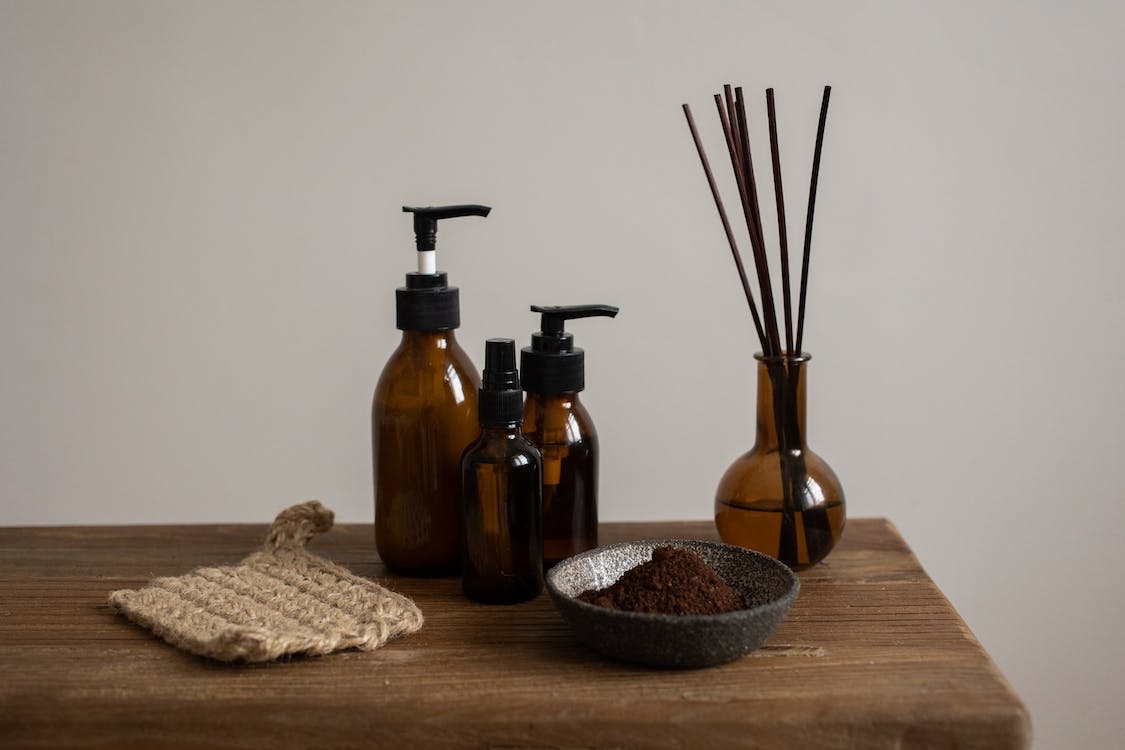
Pregnancy can bring about changes in your hair and scalp, and it's essential to care for them properly. Here are some tips to maintain a healthy scalp and beautiful hair during this special time.
1. Shampoo & Conditioner:
Many pregnant women experience dry skin and itchiness on their scalp. Look for shampoos with moisturizing properties to alleviate this.
Check for natural ingredients like argan oil, avocado oil, coconut oil, and nourishing butter like shea butter or kokum butter.
Opt for products that are paraben-free, sulfate-free, and phthalates-free. Avoid shampoos containing methylisothiazolinone (MIT) to ensure safety for both you and your baby (3).
The same guidelines apply to conditioners. A pregnancy-safe conditioner will keep your scalp and hair well-hydrated and nourished.
2. Shampoos for Dandruff And Itching:
Itchy scalps and dandruff can be common during pregnancy. However, exercise caution when selecting dandruff shampoos, as many contain ingredients that may not be entirely safe for pregnant women or lack sufficient evidence of safety.
Ingredients like selenium sulfide, zinc pyrithione, salicylic acid, ketoconazole, and coal tar are often found in dandruff shampoos and may pose concerns during pregnancy.
Instead, consider shampoos with natural ingredients like tea tree oil or apple cider vinegar, which are gentler and potentially safer options (4), (5).
3. Hair Oil:
Hair oils are excellent for retaining moisture in your hair and preventing scalp dryness.
Look for oils rich in fatty acids and nourishing properties.
Avoid ingesting or applying undiluted essential oils topically during pregnancy. Instead, try inhaling essential oils or use a diffuser to enjoy their benefits safely (6).
Pregnancy brings changes to your body, including your hair follicles and hair strands. It's essential to use products that prioritize safety for you and your baby. Consult with your healthcare provider or a dermatologist if you have specific concerns about the products you're using, especially during pregnancy.
When Should You See a Doctor?
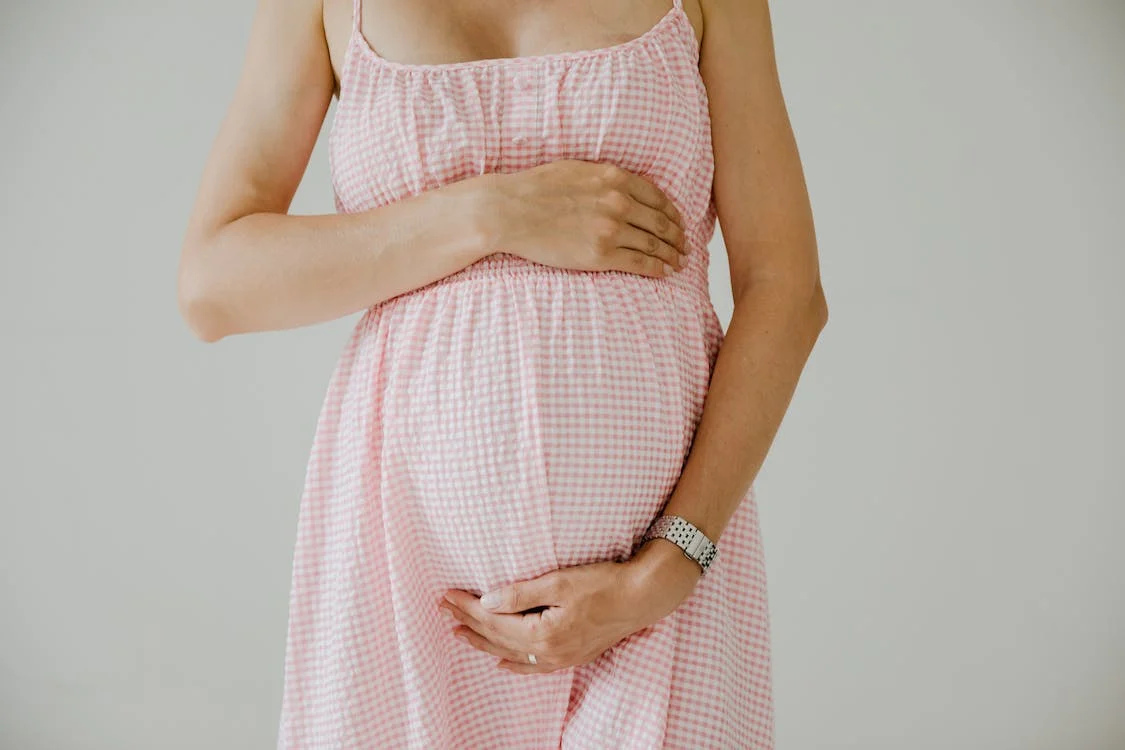
During pregnancy, it's not uncommon to experience itching on your scalp and other parts of your body. This can be due to various reasons, and it's important to differentiate between different conditions to ensure the health of both you and your baby. Here's what you need to know:
Scalp Psoriasis:
If you suspect you have scalp psoriasis, consult a doctor for proper diagnosis and treatment. Because the itching might not be limited to the scalp and can affect other areas of your body as well. The severity can vary.
Some studies suggest that psoriasis may increase the risk of certain adverse effects during pregnancy. While overall evidence does not firmly establish this link, hormonal and immune system changes during pregnancy might also affect how psoriasis manifests (7).
Pustular Psoriasis of Pregnancy (PPP) - Signs And Symptoms
PPP is a rare condition that can occur during pregnancy, especially in women with a history of psoriasis. It usually develops in the third trimester and presents as inflamed skin with pustules, often in skin folds (8).
Seek medical treatment if you experience symptoms, as PPP can be life-threatening to both the mother and fetus.
Polymorphic Eruption of Pregnancy (PEP) - Signs And Symptoms
PEP or PUPP (Pruritic urticarial papules and plaques of pregnancy) is an itchy rash during late pregnancy, often near stretch marks.is a common skin disorder in pregnant women, typically occurring during the third trimester. It presents as an itchy rash with pimple-like dots near stretch marks which leads to blisters at times.
The best fix for this is time and patience. The rash should go away within a few weeks after delivery (9).
Intrahepatic Cholestasis of Pregnancy (ICP) - Signs And Symptoms
ICP or obstetric cholestasis is a liver disorder during pregnancy that can cause itching without a rash. It typically affects the hands and feet and can be worse at night. Other symptoms may include dark urine and pale stools (10).
You should seek medical attention if you experience itching associated with these symptoms.
Pruritus or Prurigo of Pregnancy
Prurigo during pregnancy is a rash-causing itchy, discolored bumps on the skin. It typically appears in the second or third trimester but may continue for a few months postpartum (9). While uncomfortable, it doesn't usually pose complications for you or your baby.
Knowing about these medical conditions is important because it helps you recognize when it's necessary to consult a doctor.
Conclusion
So, if you're dealing with an itchy scalp during pregnancy, remember you're not alone. It might be due to hormonal changes or other factors, but you can take steps to relieve it. In case of any hair or skin conditions, the best approach is to consult a doctor to pinpoint the actual cause and get personalized advice for a comfortable and healthy pregnancy journey. Neglecting it might even lead to severe postpartum hair loss. Fortunately, most of these conditions are temporary and there are many hair treatments to help you.
ALSO READ: How do you treat a dry scalp and oily hair?





 JOIN OUR WHATSAPP CHANNEL
JOIN OUR WHATSAPP CHANNEL




































